Home

Bulky Ovaries Explained: What Every Woman Should Be Aware Of
In this Article
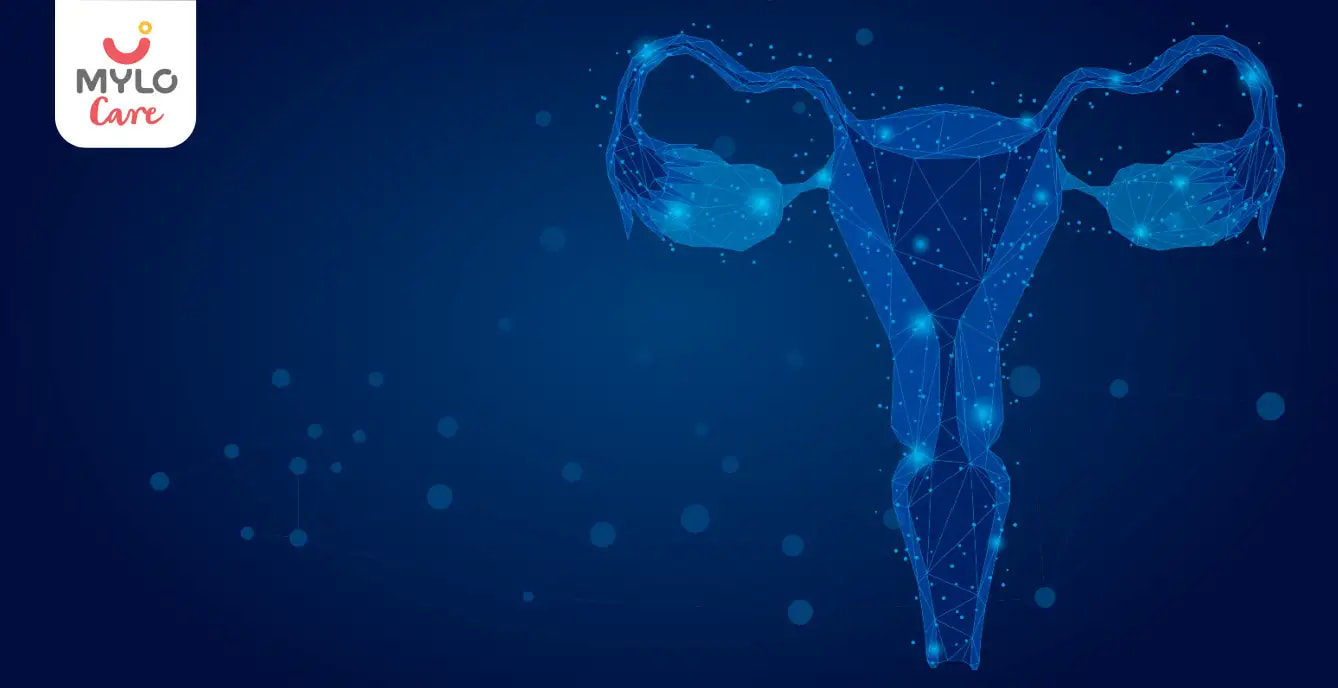
Getting Pregnant
Bulky Ovaries Explained: What Every Woman Should Be Aware Of
Updated on 14 December 2023
Ovaries, the small almond-shaped organs situated within the pelvic cavity, play a crucial role in a woman's reproductive health. However, when they become bulky, it can lead to concerns and questions about what this means for overall well-being. By exploring the causes, symptoms, and potential implications of bulky ovaries, women can alleviate any unnecessary anxiety.
In this article, we will delve into the intricacies of inflamed ovary, shedding light on the subject and equipping every woman with the knowledge needed to navigate their reproductive health with confidence and understanding.
What does a bulky or enlarged ovary mean?
A bulky ovary means that the ovary has increased in size beyond what is considered normal. Ovaries are typically small, almond-shaped organs located on either side of the uterus, and they play a crucial role in a woman's reproductive system. However, when they become bulky, it can be an indication of an underlying health issue.
Symptoms of ovaries bulky in size
While many women with ovaries bulky in size may not experience any noticeable symptoms, others may have certain indications that something is not quite right. Some common symptoms include:
-
Abdominal discomfort or pain
-
Urinary urgency
-
Bloating and weight gain
If you experience any of these symptoms, it's important to consult with your healthcare provider for an accurate diagnosis and appropriate treatment.
What are the causes of bilateral bulky ovaries?
There are several potential causes of enlarged ovaries. Here are seven common ones:
1. Polycystic ovary syndrome (PCOS)
PCOS is a hormonal disorder characterized by enlarged ovaries containing multiple small cysts. This condition can lead to irregular periods, infertility, and other symptoms.
2. Ovarian cysts
A cyst is a fluid-filled sac that can develop on the surface of the ovary. When these cysts grow larger, they can contribute to bulky ovaries.
3. Endometriosis
Endometriosis occurs when the tissue lining the uterus grows outside of the uterus, including on the ovaries. This can cause the ovaries to become enlarged and painful.
4. Ovarian tumors
Both benign and malignant tumors can cause the ovaries to enlarge. These tumors may need to be surgically removed for further examination and treatment.
5. Ovarian hyperstimulation syndrome (OHSS)
OHSS can occur as a side effect of certain fertility treatments, such as in vitro fertilization (IVF). It causes the ovaries to become enlarged due to an excessive response to hormonal stimulation.
6. Pelvic inflammatory disease (PID)
PID is an infection that affects the reproductive organs, including the ovaries. Inflammation from PID can lead to bulky ovaries.
7. Hormonal imbalances
Imbalances in hormones, such as estrogen and progesterone, can disrupt the normal functioning of the ovaries and contribute to their enlargement.
It's important to note that the causes can vary from woman to woman, and a thorough evaluation by a healthcare professional is essential for an accurate diagnosis.
You may also like: Laparoscopic Ovarian Drilling: A Safe and Effective Solution for PCOS-related Infertility
What are the potential risks of bulky ovaries?
While having ovaries bulky in size does not necessarily mean that there are serious risks involved, there are some potential complications that women should be aware of. Here are five risks associated with an enlarged ovary:
1. Infertility
Bilateral bulky ovaries can interfere with the normal release of eggs during ovulation, leading to difficulty in conceiving. This is particularly relevant when conditions like PCOS are present.
2. Ovarian torsion
Enlarged ovaries are more prone to twisting upon themselves, causing a condition known as ovarian torsion. This can result in severe abdominal pain and may require immediate medical attention.
3. Ruptured cysts
If a cyst on a bulky ovary ruptures, it can cause intense pain and potentially lead to complications, such as internal bleeding or infection.
4. Increased risk of ovarian cancer
Although the risk is relatively low, ovaries bulky in size have been associated with a slightly higher risk of developing ovarian cancer. Regular check-ups and screenings are important for early detection and treatment.
5. Psychological impact
Dealing with the symptoms and potential complications of bulky ovaries can take a toll on a woman's mental health. It is important to seek support and address any emotional challenges that may arise.
It's crucial to consult with a healthcare professional to understand the specific risks associated with your individual situation and to develop an appropriate management plan.
6. Enlarged ovary and pregnancy
Many women wonder whether having an inflamed ovary can affect their ability to conceive or carry a pregnancy. While the presence of bulky ovary means some issues may arise with fertility, it does not necessarily mean that pregnancy is impossible.
In some cases, the underlying cause such as PCOS, may contribute to fertility challenges. However, with proper medical intervention and management, many women with bulky ovaries are still able to conceive and have successful pregnancies.
It's important for women who are trying to conceive to work closely with their healthcare provider to address any underlying issues, optimize fertility, and ensure a healthy pregnancy.
Bulky ovaries treatment
The treatment depends on the underlying cause and the symptoms experienced by the individual. Here are five treatment options that may be considered:
1. Hormonal therapy
In cases where hormonal imbalances contribute to enlarged ovaries, hormonal therapy may be prescribed to regulate hormone levels and reduce the size of the ovaries.
2. Surgical intervention
If the cause is a cyst, tumor, or other structural abnormality, surgery may be necessary to remove the growth and alleviate symptoms.
3. Fertility treatments
For women struggling with infertility due to conditions like PCOS, fertility treatments such as ovulation induction or in vitro fertilization (IVF) may be recommended to improve the chances of conception.
4. Pain management
Over-the-counter pain relievers or prescription medications may be used to manage abdominal pain or discomfort associated with ovaries bulky in size.
5. Lifestyle modifications
For certain conditions, such as PCOS, making changes to diet and exercise habits can be beneficial in managing symptoms and reducing the size of the ovaries.
It's important to consult with a healthcare professional to determine the most appropriate treatment plan based on individual circumstances.
FAQ’s
1. Is there any natural treatment for ovaries bulky in size?
While natural remedies may not directly reduce the size of ovaries, they can help manage symptoms and promote overall well-being. These include consuming a healthy diet, engaging in regular exercise, managing stress, taking herbal supplements and trying acupuncture.
2. Can I have enlarged ovary and pregnancy?
Having an inflamed ovary does not necessarily mean that pregnancy is impossible. While there may be challenges associated with fertility and conception, many women with this condition are still able to conceive and have successful pregnancies.
Final Thoughts
Bulky ovaries can be a concerning condition for women, but it's important to remember that it can have various causes and implications. While their presence may present challenges in terms of fertility and pregnancy, many women are still able to conceive and have successful pregnancies with the right medical intervention and support. It's crucial to consult with a healthcare professional for an accurate diagnosis and appropriate treatment plan based on individual circumstances.
References
1. Puzigaća Z, Prelević GM, Stretenović Z, Balint-Perić L. (1991). Ovarian enlargement as a possible marker of androgen activity in polycystic ovary syndrome. Gynecol Endocrinol.
2. Westermann CM, Parlevliet JM, Meertens NM, Sloet van Oldruitenborgh-Oosterbaan MM. (2003). Een vergroot ovarium bij de merrie, een literatuuroverzicht aan de hand van een casus [Enlarged ovary in a mare: review of the literature and a case report].



Written by
Anandita Sharma
Drawing on more than a decade of expertise in administration, Anandita Sharma currently serves as a content operations e
Read MoreGet baby's diet chart, and growth tips

Related Articles
Related Questions
Influenza and boostrix injection kisiko laga hai kya 8 month pregnancy me and q lagta hai ye plz reply me

Hai.... My last period was in feb 24. I tested in 40 th day morning 3:30 .. That is faint line .. I conculed mylo thz app also.... And I asked tha dr wait for 3 to 5 days ... Im also waiting ... Then I test today 4:15 test is sooooo faint ... And I feel in ma body no pregnancy symptoms. What can I do .

Baby kicks KB Marta hai Plz tell mi

PCOD kya hota hai

How to detect pcos

RECENTLY PUBLISHED ARTICLES
our most recent articles
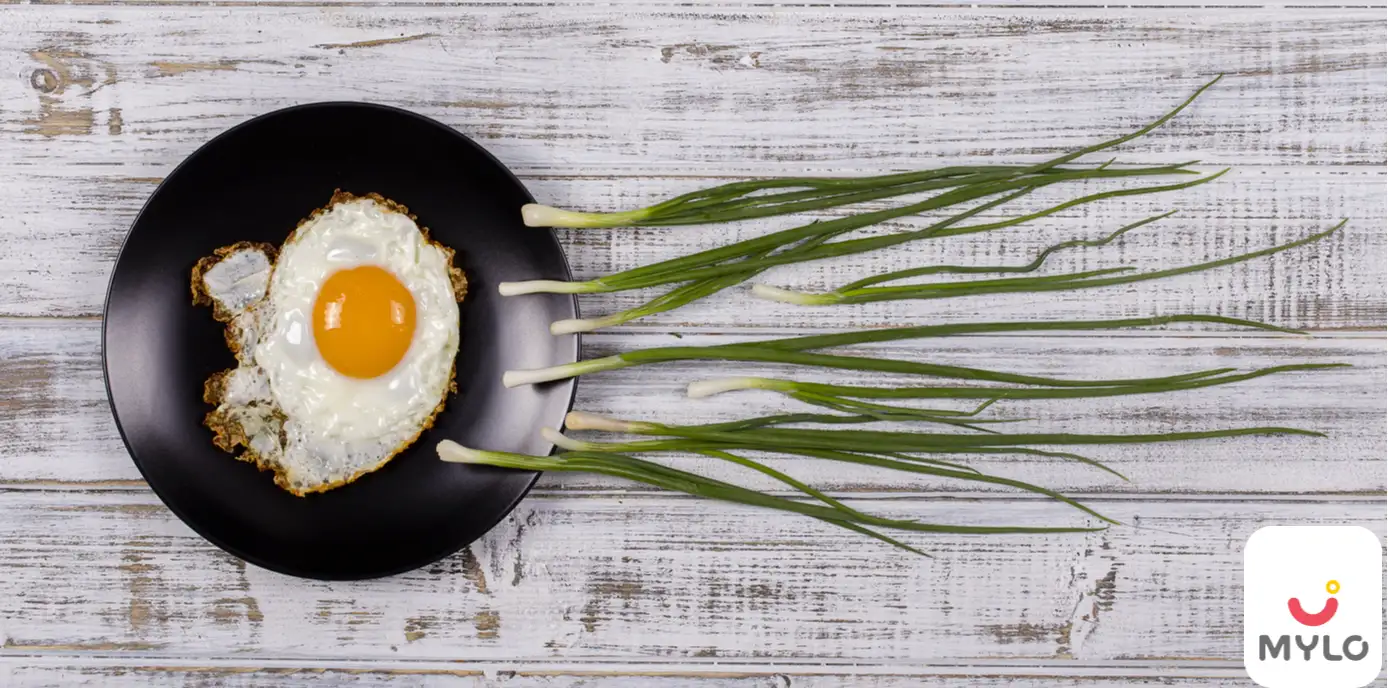
Getting Pregnant
Ovulation: The Key to Maximizing Your Chances of Conception and Pregnancy

Fun & Humour
The Ultimate Compilation of Fancy Dress Ideas for Young Kids
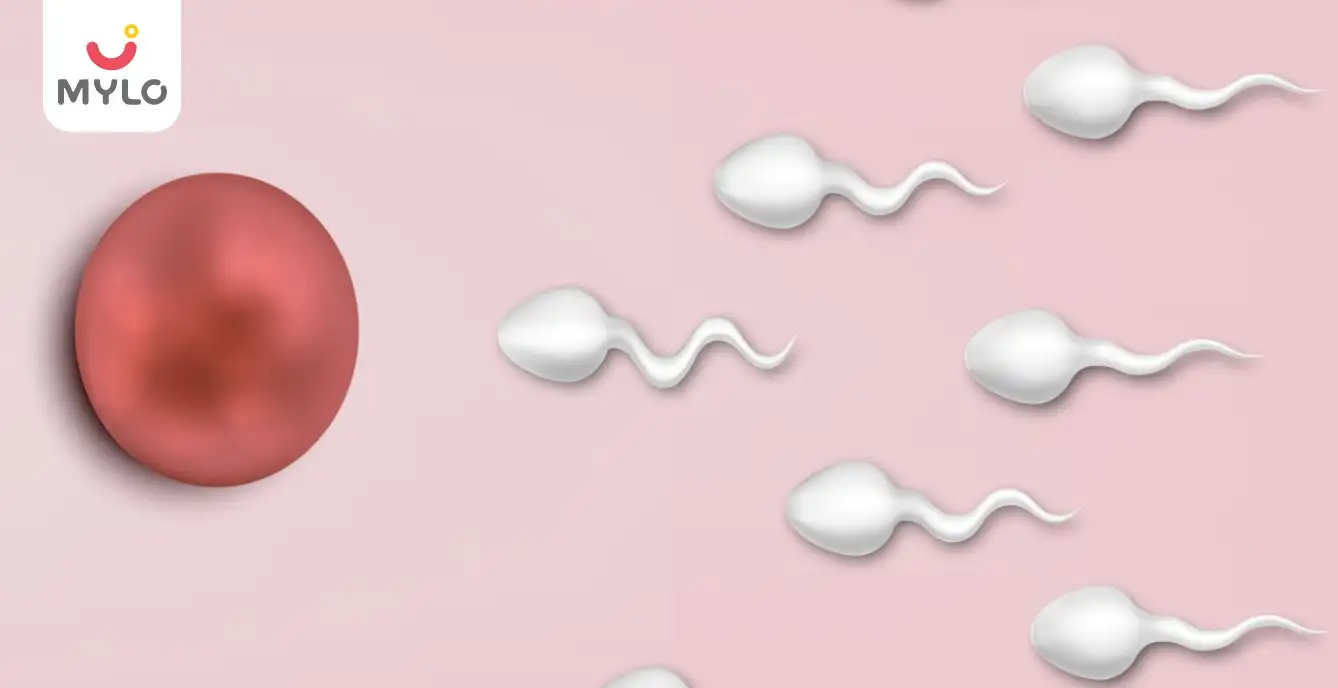
Conception
How Long Does Sperm Take to Reach the Egg?

Ovulation
Pregnancy Symptoms After Ovulation Day by Day: Exploring the Daily Progression
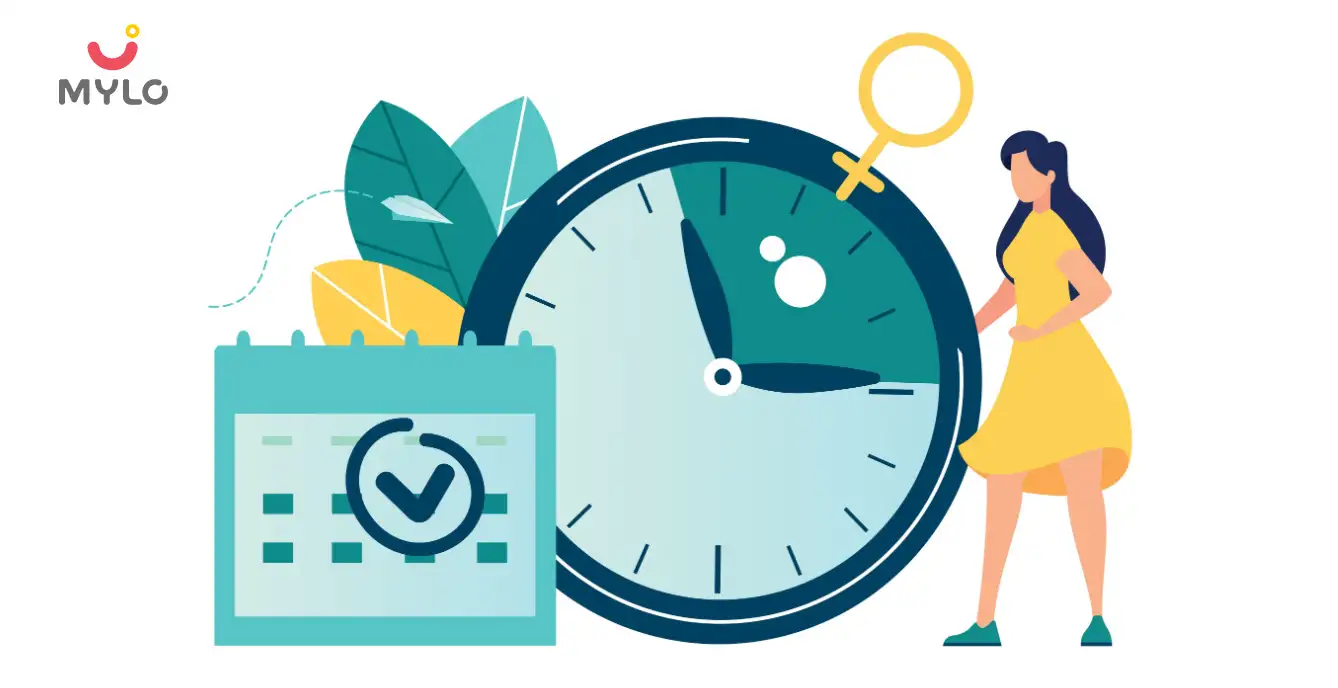
Ovulation
Signs Ovulation is Over: Your Guide to Understanding the End of Ovulation
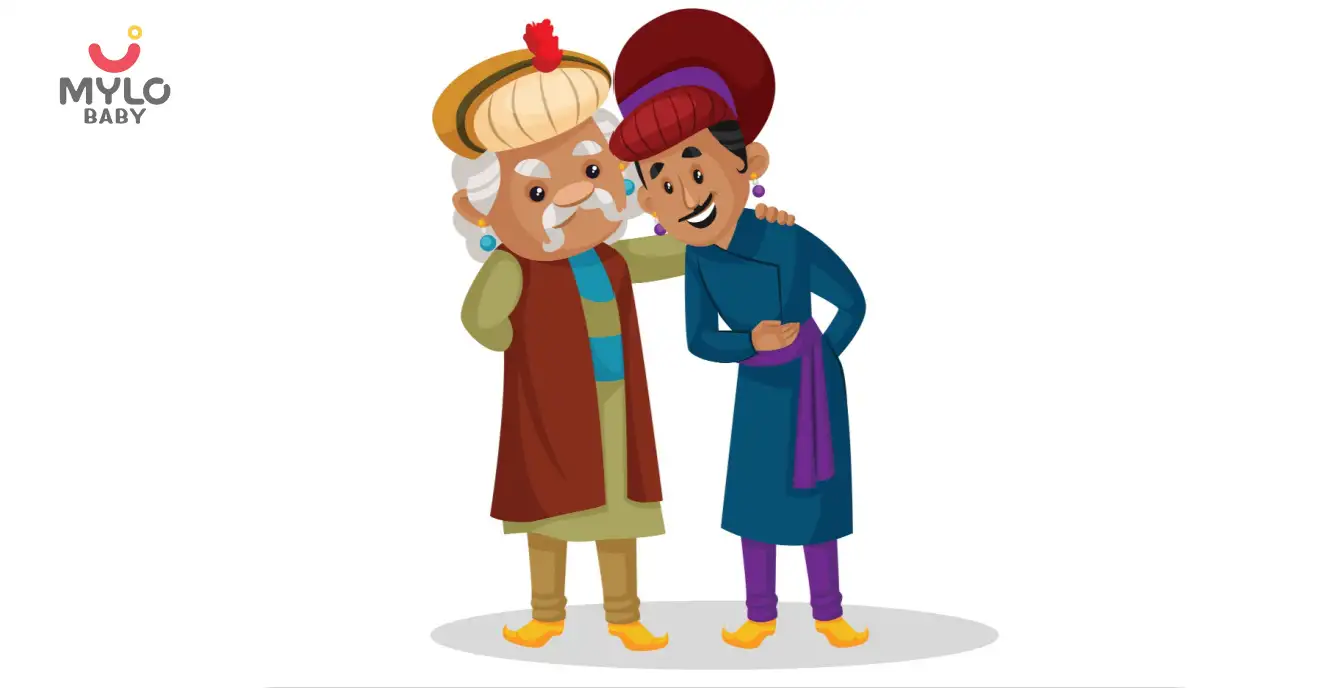
Stories
Top 15 Akbar and Birbal Stories for Young Kids
- How Soon After an Abortion Can You Get Pregnant?
- PCOS and Sex: Exploring Impact on Health and Debunking Common Myths
- Papaya for PCOS: Exploring the Link and How It Can Positively Impact Your Health
- How to Boost Fertility in Your 30s: The Ultimate Guide
- Anovulation Meaning Explained: What You Need to Know About Its Causes & Treatment
- Basal Body Temperature: How It Can Help You Track Ovulation?
- Ovulation Pain: Is It Normal or a Cause for Concern?
- Special Home Remedies For Gas During Pregnancy
- PCOD Problem After Marriage: Debunking Common Misconceptions and Finding Solutions
- White Discharge After Ovulation: A Normal Occurrence or Cause for Concern?
- Normal Ovary Size: How It Varies and What It Means for You
- 2024 Calendar with Holidays and Festivals of India
- After-Abortion Sex: A Guide to Physical and Emotional Wellness
- Cervical Cerclage: A Closer Look at the Procedure and Its Benefits


AWARDS AND RECOGNITION

Mylo wins Forbes D2C Disruptor award

Mylo wins The Economic Times Promising Brands 2022
AS SEEN IN
















- Mylo Care: Effective and science-backed personal care and wellness solutions for a joyful you.
- Mylo Baby: Science-backed, gentle and effective personal care & hygiene range for your little one.
- Mylo Community: Trusted and empathetic community of 10mn+ parents and experts.
Product Categories
baby carrier | baby soap | baby wipes | stretch marks cream | baby cream | baby shampoo | baby massage oil | baby hair oil | stretch marks oil | baby body wash | baby powder | baby lotion | diaper rash cream | newborn diapers | teether | baby kajal | baby diapers | cloth diapers |




